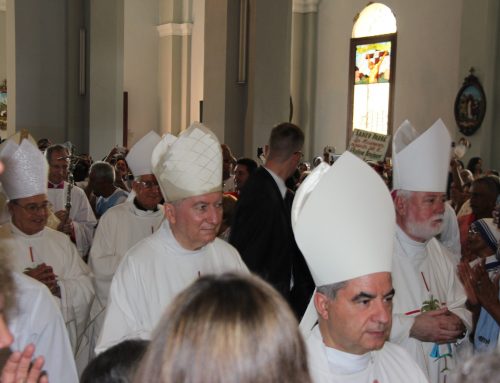Mosul Christians fear they can never return home
Two years after IS conquered Mosul, some of the city’s Christians still live as refugees in St Mary’s Church in Amman, Jordan – one of several churches in the Jordanian capital that opened its doors to terrified refugees who arrived with nothing but the clothes they wore. The church provides meals for hundreds of refugees on Fridays and Sundays and opened a school for the children with women from the local community making uniforms.
Displaced Christian families living in Amman, wonder what will happen next. Even now,as Iraqi forces and their allies launch a major offensive to reclaim Mosul, their prospects of returning appear bleak.
“There is no hope for them in Iraq” says Father Khalil Jaar, who has spent the past two years helping refugees fleeing from Iraq and Syria. He refuses to turn away those in need, whatever their religion: “We have a new arrival almost every week. We have families arriving from Mosul, Erbil and Baghdad.”
Fr Khalil says he draws strength from the spirit and resolve of the refugees in spite of the death and violence that has engulfed the region in the past few years. “Perhaps Christianity will disappear from the Middle East,” he adds.
“We don’t have a temple, our churches have been destroyed, but it doesn’t matter — our heart is the temple of the Lord and so wherever we go, we have to live our faith.”
One of the Mosul refugees echoes his sentiment: “They are trying to wipe out all our history, …. It is why they forced us out. But they don’t know that in our hearts we will remain Iraqis, and our grandchildren will always say they are from Mosul.”
The liberation of Mosul from IS will be a long process that is estimated to take several months. However, even in smaller towns in the Nineveh Plain that have already been recaptured from IS, the situation remains volatile and it is uncertain when and if the Christian residents who fled to Jordan and Kurdistan will be able to return.
NPU spokesman Athra Kado said “After ISIS, it became one of my life goals to reach our towns, because it’s like we lost with each Assyrian town [taken by ISIS] a part of our body.” The NPU is one of a number of Christian militias operating in Iraq, but it is the only one to be official isotretinoinonlinebuy.com/ recognised and supported by the Iraqi government.
Although Qaraqosh – also known by its Assyrian name Baghdeda – was liberated three weeks ago and the majority of IS militants forced out or killed, the people of Qaraqosh are still not able to return. Sporadic gunfire is still going on as Iraqi troops search houses for hiding jihadists and detonated explosives left behind by IS fighters and the town is in ruins.
“It was like a disaster,” Kado says of Qaraqosh. “The buildings were crushed, most of the houses burned, the church was – and is – still in a very bad way. But of these two sides, happiness and sadness, it was more like happiness. We can rebuild. It’s the work of hundreds of years, and ISIS came in two years and broke everything, but we can rebuild.”
Kado believes it will be several months before the region is secure and Christians can return home as “the town is not 100 per cent cleared from IEDs [improvised explosive devices], or from bombs, so it is still not safe for civilians.” but Christian soldiers are desperate to take back their towns from IS: “It [the Nineveh Plain, before ISIS] felt like the only place in the word that we were safe, but even that place was taken from us. Now, we’re trying to get it back.”
Hamdaniya , a once-tranquil town populated mostly by Christians lies in ruins after almost two years of occupation by Islamic State. Almost all its125,000 residents left the town to escape from ISIS in August 2014. Most of them are still in refugee camps, grappling with the immensity of the destruction in the area after it was liberated recently by Iraqi-led coalition forces.
At least 70 percent of the town was destroyed by IS. Residential areas have been reduced to ashes, commercial stores looted and demolished, and once-bustling streets now covered in debris. Many Christian churches are also reduced to rubble, including the Mar Gorgis Church which was used by IS militants as a bomb factory and still contains stocks of missiles and piles of improvised explosive devices. Iraqi soldiers said that IS deliberately chose the church as its storage facility for explosives, thinking that it would not be targeted by airstrikes launched by other countries attempting to liberate Iraq because it was a sacred place.
ACN Malta


